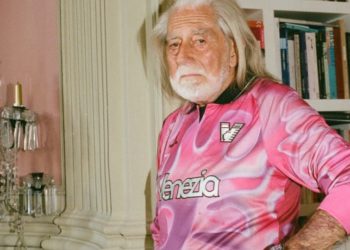Strongmen don’t only measure power in gold-plated palaces and military parades, but also exotic creatures more at home in the Serengeti than dull European plains.
Recent drone footage of Hungarian Prime Minister Viktor Orbán’s family estate at Hatvanpuszta, a former Habsburg property, triggered controversy by revealing that beyond luxury features like a palm garden, a chapel and fountains, exotic animals including zebras and antelopes also roamed the grounds.
The scandal erupted in early August, after opposition MP Ákos Hadházy published pictures of Orbán’s unfinished estate, challenging the government’s insistence that the site is merely an agricultural “majorság” owned by the prime minister’s father.
Poland’s Foreign Minister Radosław Sikorski trolled Orbán over the footage, asking him whether zebras are “traditional farm animals” in Hungary.
From Budapest to Grozny, from Moscow to Pyongyang, strongmen leaders have long turned wild animals into political props, as symbols of wealth, virility and power. In light of Orbán and the zebras, POLITICO took a look at some of the world’s other controversial animal aficionados.
Shark tale
Georgian oligarch and de facto ruler Bidzina Ivanishvili resides in a neo-modernist steel-and-glass castle above Tbilisi — with his own shark tank. In recent years, his Georgian Dream party has pivoted away from the EU and toward a more pro-Russian pathway.
A known collector of exotic plants and animals, Ivanishvili had amassed an impressive personal zoo in his mansion, including penguins, zebras, lemurs, a kangaroo and, yes, a shark. In a 2014 interview, he modestly described the shark as small, “just a meter and a half.”
“Lemurs roamed free in my yard like cats,” he added.
Ousted ostrich connoisseur
Ukraine’s former Russian satrap Viktor Yanukovych also had a zoo in his mansion featuring peacocks, pheasants, deer and bears. He also once owned three kangaroos, but one froze to death, one escaped and the third was released in the hope they would return — which didn’t happen.
But it was the ostriches that made him a famous wildlife buff following his first big interview after being ousted from Kyiv by the Euromaidan revolution in 2014. Yanukovych said: “I supported the ostriches, what’s wrong with that?” — a phrase that instantly unleashed a wave of memes.
Those ostriches outstayed their owner, who fled to Russia, and still roam around the Kyiv mansion grounds, which is now a public park.
If you see a crocodile, don’t forget to scream
Chechen warlord Ramzan Kadyrov is said to keep dozens of animals across his many palaces. Cats, hunting dogs, and the usual horses, deer, bears and ducks wouldn’t massively impress anyone on this list.
But his collection reportedly goes further, including a camel meat farm. And Kadyrov — himself nicknamed “Putin’s attack dog” — also owns a tiger, a lion and a crocodile, according to Radio Freedom reporting.
Few people involved in the Ukraine war are more fearsome than motormouth Kadyrov — at least when it comes to social media. Perhaps his bark is worse than his bite.
Yaks for troops
In a gesture emblematic of authoritarian diplomacy, Russia gifted North Korea more than 70 zoo animals last year, including an African lion, two brown bears and two yaks.
The lavish present came one month after North Korea had deployed troops to assist Russian President Vladimir Putin in his war on Ukraine.
Putin, who favors large dogs, spoke to North Korean dictator Kim Jong Un on Tuesday ahead of crunch talks with the U.S. about the Kremlin’s war on Ukraine. Zoology did not appear to feature on the agenda.
Can’t change its spots
Even a president who largely disdains pets can’t resist a little big-cat diplomacy.
During his May visit to Saudi Arabia, U.S. President Donald Trump received more than investment pledges: The kingdom gifted a pair of rare Arabian leopards to the Smithsonian National Zoo.
Known for his indifference toward animals — he has never brought a dog or cat into the White House, and once tweeted about how much he dislikes sharks — Trump was reportedly intrigued by the leopards, asking the Smithsonian’s director about their personalities and showing a keen interest in the species.
Silence of the lambs
Not all strongmen prefer predators.
In 2017, Italy’s maverick former Prime Minister Silvio Berlusconi posed with lambs during a vegetarian-themed Easter campaign. “Be like him. He saved five lambs from the Easter slaughter!” a scrolling message urged TV viewers.
While much less ferocious than the animals linked to other figures on this list, the stunt aimed to craft a gentler image for the flamboyant media mogul-turned-politician, transforming the woolly livestock into a political PR tool.
The post Zebra King: The wild world of political animals appeared first on Politico.




